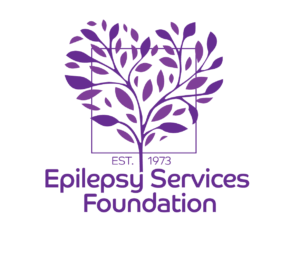Helping Teens Be Their Own Best Advocate

Living with epilepsy presents a host of challenges; for teens with epilepsy, there are even more layers to this already challenging way of life. Along with the health concerns of epilepsy, adolescents are also learning to navigate the varying social dynamics of young adulthood and what role their health needs should play as they forge new friendships and plan for their future. Having a diagnosis such as epilepsy can cause young people to feel different and vulnerable, at a time in life where fitting in and exerting independence are of utmost importance to them. One way you can help make this a smoother transition for your teen is to help them learn strong self advocacy skills. Being able to advocate for oneself increases confidence, teaches young adults to listen to what their bodies are telling them, and will give them the tools needed to communicate their needs clearly and make smart choices for their healthcare in the future.
An obvious, low barrier to entry place to start is at home, with their seizure medication. If they aren’t already, have your teen be responsible for their own meds. Reminders on their phone will help ensure medications are taken at the appropriate times and prevent missed doses. Make sure they know the names of their medications, in addition to the exact dosage(s). Teach your teen how to fill and refill their prescriptions, schedule their own doctors appointments, encourage them to use the notes app on their phone to keep track of questions or concerns they want to bring up at their next appointment, and allow them to play an active role in selecting the provider they will see once they’ve transitioned from pediatric to adult care.
School is another place of high importance in your students’ life, and it’s a great place for them to practice these critical self advocacy skills. Let them take a leading role in meeting with teachers and pertinent school staff to communicate information regarding their epilepsy diagnosis and important seizure first aid techniques. Encourage your student to maintain open communication with their teachers regarding any health factors that may be impacting their learning. Talk to your teen about how to stand up for themselves in the face of any potential bullying or discrimination and have them become familiar with their legal rights as it pertains to employment.
Speaking of employment….if your young adult has a job or plans to get one, it will be necessary for their own safety that they communicate their medical needs to their employer and advise them on what to do in the event of an emergency. If they will be working during a time they need to take their medication, have them ask their employer ahead of time for a temperature appropriate location to store their meds and ensure they will be able to take their medication at the indicated time. This is another great opportunity to provide seizure education to the staff so that employees know how to best respond if a seizure were to occur at work.
In their social circles, teens can educate their classmates, teammates, coaches, and friends on epilepsy and how to be inclusive of others that may have health concerns, along with sharing with them how to keep someone safe when they are having a seizure. Being open to answering their peers’ questions will help with destigmatizing epilepsy and seizures in their school environment.
Learning these self advocacy skills can be empowering for teenagers grappling with a diagnosis that can often make them feel as if they lack control in how they are able to live their lives. The more educated they are about their own health needs and the more confident they feel in speaking up for themselves, the safer and more comfortable they will be with trying new things and living full lives, which is what every parent wants for their child.



